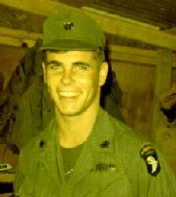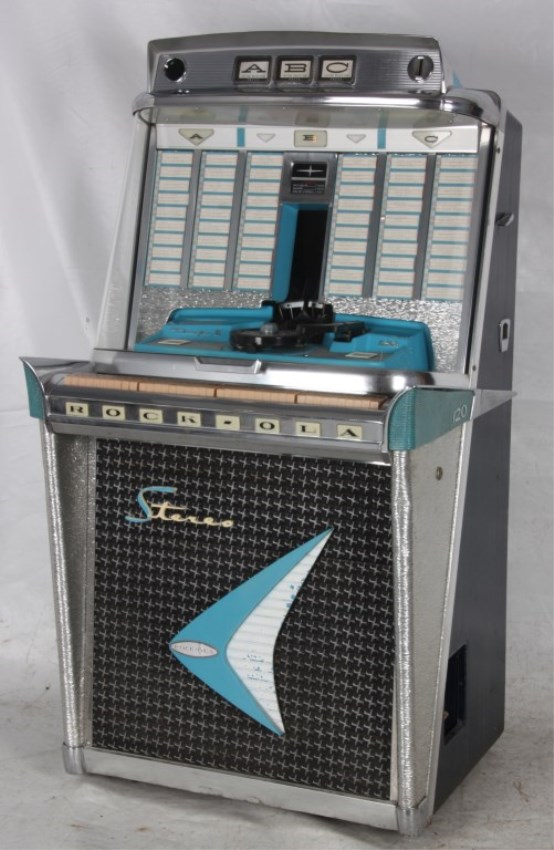
The 60s Official Site
"Where Music is Our Middle Name"
Quick Links
Your Daily Oldies Fix Top Ten Countdown Solid Gold Memories Jukebox Music
Vibration of a Nation Remember When Television of the 50s and 60s 60s Slang
Things You Just Don't Hear Anymore 60s TV Commercials Chickenman Episodes Woodstock This Weeks Number One Hits
The Early Years of Rock and Roll Vietnam War Myths
All the content menu is listed on the left menu border bar
McHale's Navy
McHale's Navy is an American television sitcom series which ran for 138 half-hour episodes from October 11, 1962 to August 31, 1966 on the ABC network. The series was filmed in black and white and originated in a one-hour drama called Seven Against the Sea, broadcast on April 3, 1962. Academy Award-winning dramatic actor Ernest Borgnine as McHale first appeared as the lead character in a one-shot non-comedy drama called Seven Against the Sea, which aired as an episode of Alcoa Presents in 1962, an ABC dramatic anthology also known as Fred Astaire's Premiere Theatre and hosted by Fred Astaire, who introduced television audiences to the Quinton McHale character. During World War II, Lieutenant Commander Quinton McHale (Borgnine) is the commanding officer of the U.S. Navy PT boat, PT-73, stationed at the Pacific island base Taratupa. In the late spring of 1942, the Japanese heavily bombed the island, virtually destroying the base. Only 18 out of the 150 Naval Aviators and Marines assigned to the base survived. With the Japanese patrols in the region too heavy for the Navy to mount a rescue mission, McHale and his men were forced to survive by hiding on the island. Assisted by the native tribes whom they befriend, the sailors live a relatively paradisical island existence. After months of rather leisurely living, straight-laced, by-the-book Annapolis graduate Lieutenant Durham (Ron Foster) parachutes onto the island. His job is to assume duties as McHale's executive officer (XO) and help him get the base on Taratupa back into the action. Durham faces an uphill battle, however: The men have gone native. One of them has started a native laundry service, and McHale has a still and makes moonshine for the men and the natives. In addition, McHale is close friends with the native chief and even bathes with him. When Durham informs McHale of his new orders, McHale refuses to follow them. It becomes clear that while McHale is as loyal as any American, following the devastation the Japanese rendered on the previous attack on the base, he is now extremely reluctant about losing any more men. His primary concern now is for their survival until they can be rescued, which creates a great deal of friction between Durham and McHale. When they receive word that a Marine battalion is pinned on a beach, and an enemy cruiser is planning to attack the beachhead in the morning, McHale's attitude changes. McHale is ordered to use all boats they have to protect the beachhead and the Marines; however, McHale does not have any boats, as the Japanese have sunk them all. However, McHale manages to capture a Japanese PT boat that has come to patrol the island. In a surprise to both his men and Durham, McHale does not plan to use the boat to evacuate either his men or the Marine battalion. Instead, he plans to attack and destroy the Japanese cruiser. His plan is that since they are on a Japanese boat, flying a Japanese flag, that they can get close enough to torpedo the cruiser twice and send it to the bottom. The series was also set in the Pacific theatre of World War II – although in the show's last season the setting was switched to the European theatre in Italy – and focused on the crew of PT-73, again led by Lieutenant Commander Quinton McHale played by Ernest Borgnine. The producer of the series, Edward J. Montagne, had had great success with the top-rated series The Phil Silvers Show (1955–1959), a military comedy with an opportunistic non-commissioned officer and his loyal platoon constantly putting something over on the base commander. While the pilot had been dramatic, with overtones of Henry Fonda's introspective Mister Roberts, Montagne essentially turned the project into "Bilko in the Navy", and even recruited some of the Bilko actors and writers. If Borgnine had any misgivings about his show's change of direction, he hid them well enough and happily played straight-man to the comedians surrounding him. At the time of the series, then- President John F. Kennedy was well-known as being the wartime commander of PT-109. A popular book, PT 109: John F. Kennedy in WWII by Robert J. Donovan had come out the previous year, and PT-109 was sometimes slyly referenced in a few episodes relating to a young commissioned PT-boat officer. In the first episode it is established that McHale was a former merchant ship captain who was intimately familiar with the South Pacific. McHale's second-in-command is Ensign Charles Parker (Tim Conway), who is referred to by McHale as "Chuck" and by the crew as "Mr. Parker" (in the United States Navy all officers ranked from Ensign to Lieutenant Commander who are not in command are more often than not referred to as "Mister"). Conway's performance as a gentle, naïve but somewhat gung-ho bungler who usually succeeded in spite of his own ineptitude was career-defining. Parker frequently mentions that he is from Chagrin Falls, Ohio (Tim Conway grew up there in real life). Among Parker's catchphrases were "Gee, I love that kind of talk" and citations of various naval regulations. In an episode entitled, "The Great Impersonation", Mr. Parker is called upon to impersonate a famous British General (Tim Conway in a dual role) in Noumea, New Caledonia (where he dodges assassins) while the real general leads an invasion against Japanese forces. McHale's perpetually frustrated commander is Captain Wallace Burton Binghamton (Joe Flynn), known behind his back as "Old Leadbottom" (a nickname he received from a bullet wound to the posterior), who is constantly trying to get the goods on "McHale and his pirates." Binghamton often had dreams of military glory, but, in reality, he is a lot more inept than he thinks he is. His job before the war was running a yacht club on Long Island Sound. Among his catchphrases were "What in the name of the Blue Pacific" or "What in the name of Nimitz (or Halsey)?" when he saw gambling or native dancing girls on McHale's island, and "What is it, what, what, what?!" Another one, when he was totally frustrated, was "I could just scream!" Binghamton's dream is to send McHale and his men to prison and he did come close on more than one occasion. Binghamton's enthusiastic assistant is the sycophantic Lieutenant Elroy Carpenter (Bob Hastings, a Bilko veteran), who, at times, is shown to be just as much of a bumbler as Parker. The one time Binghamton leads the PT-73 into battle, his only success is sinking an enemy truck on land—with a torpedo. He also once had McHale replace him as base commander so that he wouldn't have to face tough-as-nails Admiral "Iron Pants" Rafferty (Philip Ober) who was inspecting naval installations in the area (an episode that featured a young Raquel Welch). In a sequel movie, McHale's Navy Joins The Air Force, the only time Binghamton gets the better of the PT-73 crew is when he orders them to jump off a dock. Throughout the run of the series, characters are frequently shown saluting without a hat on and indoors. In contrast, in the actual United States Navy, personnel are not supposed to salute "uncovered" (without a hat on) nor "in the house" (indoors) unless "covered" and "under arms" (i.e., wearing headgear and carrying a weapon, typically a sidearm such as a pistol). Binghamton also mentions The Pentagon on more than one occasion. This would have been historically accurate because the series was set in 1943–44 and The Pentagon was ready for occupancy in 1942. The plots revolved around the efforts of McHale's crew to make money, get girls and have a good time, and the efforts of Captain Binghamton to rid himself of the PT-73 crew. Sometimes, Binghamton would use legitimate means to try to get rid of McHale and/or his crew. In one episode, he even tried to get the whole crew promoted to Chief Petty Officer so that they would all be split up and reassigned. In the crew, actor and comic magician Carl Ballantine was featured as confident con man Torpedoman Lester Gruber, whose get-rich-quick schemes often got the crew in trouble. Gruber hails from Brooklyn, New York and makes frequent references to the Dodgers and Ebbets Field. Motor Machinist Mate Harrison "Tinker" Bell was played by Billy Sands ("Pvt. Paparelli" on Bilko). Gavin MacLeod (later of both The Mary Tyler Moore Show and The Love Boat) played crew member Seaman Joseph "Happy" Haines. MacLeod ended up leaving the series before its final season. Besides Borgnine, the only actors from the dramatic pilot who made it to the series were Gary Vinson as Quartermaster George "Christy" Christopher, who ends up becoming a devoted family man, Edson Stroll as Gunner's Mate Virgil Edwards, the handsome lover boy of the crew, and John Wright as Radioman Willy Moss, a good-natured Southerner who operates the crew's still (a carryover from the original dramatic pilot). During the first season, the whole crew seemed to be on a somewhat equal footing, but during the later seasons, a sort of "pecking order" was established with Gruber at its head. The most unusual crew member was a Japanese POW named Fuji Kobiaji (Yoshio Yoda), who had become a de facto comrade that the PT-73 crew kept hidden from Binghamton. However, in at least one episode as well as the feature McHale's Navy Joins The Air Force, his name is given as Takeo Fujiwara. In exchange for being given a home, Fuji gladly served as the crew's houseboy. Keeping Fuji hidden from Captain Binghamton became a running gag throughout the entire run of the series. Quite often, Binghamton is ready to send McHale and his gang to the brig, only to see them pull off a military success against the enemy that impresses Admiral Reynolds (Herbert Lytton) or Admiral Rodgers (Roy Roberts), many times thanks to McHale's knowledge of the area, gained from his service in the South Pacific as a Merchant Marine officer. Despite their reputations as schemers and connivers, McHale's men were highly competent when it came to their jobs – something McHale constantly pointed out to Binghamton and also to Mister Parker in the very first episode. Sometimes, various members of the crew would have to disguise themselves in order to carry out their elaborate schemes. Whenever a situation arose that called for disguise as a woman, it was usually Tinker or Mister Parker that would end up dressing in drag (clothing). Another running gag has a frustrated Binghamton turning to the camera (see: breaking the fourth wall), and saying, "I could just scream!", "Why me? Why is it always me?", or "Somebody up there hates me!" A Polynesian chief, Pali Urulu (Jacques Aubuchon) is as crooked as McHale's men. When McHale and his men are in Urulu's village, the chief displays a large photo of President Franklin D. Roosevelt; when the Japanese troops arrive, Urulu turns over the picture to reveal a photo of Japanese Emperor Hirohito. Another character who was as crooked as Urulu was "Big Frenchy" (George Kennedy) from New Caledonia, who always played up to McHale. One episode entitled "The Comrades of 73" portrayed the United States and the Soviet Union as being allies in the Pacific Theater of World War II. However, during the 1943–44 time period during which the series is supposed to be set, this would be incorrect. The Soviet Union did not actually declare war against Japan until August 8, 1945 – two days after the U.S. dropped the first atomic bomb on Hiroshima. McHale's love interest is a Navy nurse, Molly Turner (Bilko's Jane Dulo). Parker's love interest is a French girl from New Caledonia, Yvette Gerard, played by Claudine Longet. When McHale and his men transfer to the European Theater, there are hints of a relationship developing between Mister Parker and by-the-book female Ensign Sandra Collins (Maura McGiveney), who with a few other WAVES clad only in bathing suits, provided valuable (albeit unwitting) assistance in capturing a German U-Boat. The final season saw a major change in scenery, as both Binghamton and the 73 crew (including Fuji who, in the final season's first episode, was found stowed away in the 73 as it was being transported) are transferred to the recently liberated Italian theater – a change of assignment that was, in the real World War II, so rare that many military historians disagree as to whether such reassignments ever actually happened. (After the war in Europe ended, many high ranking officers of the 8th and 9th Air Force were sent to the Pacific to create the 20th Air Force). PT Boats were known to have seen action during the D-Day Invasion on June 6, 1944. In the first episode of the final season, it was discovered that McHale could speak fluent Italian - something that served him well in his new assignment. The addition of the clever moneymaking schemes of the Mayor Mario Lugatto (Jay Novello) and the antics of the citizens of the coastal city of Voltafiore (where Binghamton was serving as Military Governor) increased the plot twists. While Binghamton and Carpenter lived in the city hall building, McHale and his men were assigned to bivouac in tents on the nearby beach. However, they stumbled onto an abandoned wine cellar where they hid Fuji and it became their underground hideout as well - a fact that was kept a carefully guarded secret from the ever-suspicious Binghamton, though he did almost discover it on one occasion. Colonel Douglas Harrigan (Henry Beckman) represents the U.S. Army in the area and becomes another thorn in McHale's side. Something of a schemer himself, Harrigan would sometimes be on McHale's side, sometimes be on Binghamton's side, or he would play one off against the other - whatever happened to suit his purposes at the time. It has been speculated that the locale shift was done because the Pacific sets were taking up too much space on the Universal lot that could have been used for feature films instead (a fate that also befell F Troop), though as noted below, they remained standing for several years. |
|




